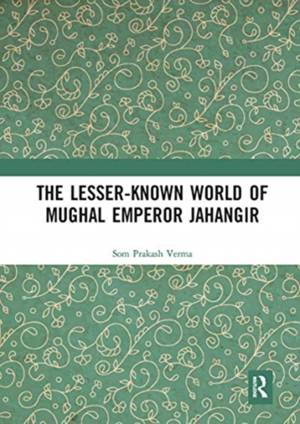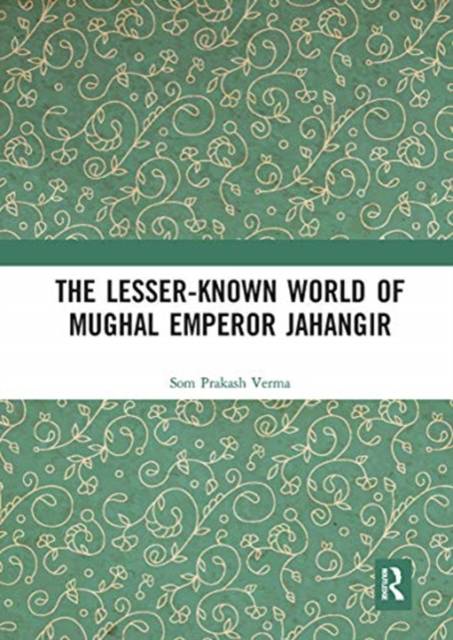
- Afhalen na 1 uur in een winkel met voorraad
- Gratis thuislevering in België
- Ruim aanbod met 7 miljoen producten
- Afhalen na 1 uur in een winkel met voorraad
- Gratis thuislevering in België
- Ruim aanbod met 7 miljoen producten
Omschrijving
This volume depicts the life and times of the Mughal emperor Jahangir in the light of his memoirs, Jahangirnama, popularly known as Tuzuk-i Jahangiri. With its fresh treatment of source material and a vivid account of historical events, the book tells the history of Jahangir's India through his intimate and confessional memoirs incorporated in the genre of Mughal manuscript painting. The work is noteworthy for its historical portraits as well as Jahangir's visual realism, his remarkable knowledge of natural history, and the perceptive and detailed descriptions of the world around him.
Moving away from conventional historical writing, the book is a psychological study of an individual, his innate qualities, behavioural moves and instinctive affinities. Jahangir's memoirs reveal deeper facets of him as a person as well as a poet, aesthete, connoisseur of painting and a keen observer of nature, both human and that of the natural world. The author also includes other contemporary literature of the period that narrate Jahangir's life, such as Akbarnama, Ma'asir-i Jahangiri, Iqbalnama-i Jahangiri, Intikhab-i Jahangiri, Tatimma-i Waqi'at-i Jahangiri and Zakhirat-ul Khwanin, as well as Jesuits accounts and travelogues. He further analyses the influence of European Renaissance art on the history of Mughal paintings.
A first of its kind, this book will greatly interest scholars and researchers of medieval history, Indian history, Mughal history, art history, popular culture and South Asian studies, as well as the general reader.
Specificaties
Betrokkenen
- Auteur(s):
- Uitgeverij:
Inhoud
- Aantal bladzijden:
- 182
- Taal:
- Engels
Eigenschappen
- Productcode (EAN):
- 9780367777340
- Verschijningsdatum:
- 1/04/2021
- Uitvoering:
- Paperback
- Formaat:
- Trade paperback (VS)
- Afmetingen:
- 175 mm x 246 mm
- Gewicht:
- 452 g

Alleen bij Standaard Boekhandel
Beoordelingen
We publiceren alleen reviews die voldoen aan de voorwaarden voor reviews. Bekijk onze voorwaarden voor reviews.












